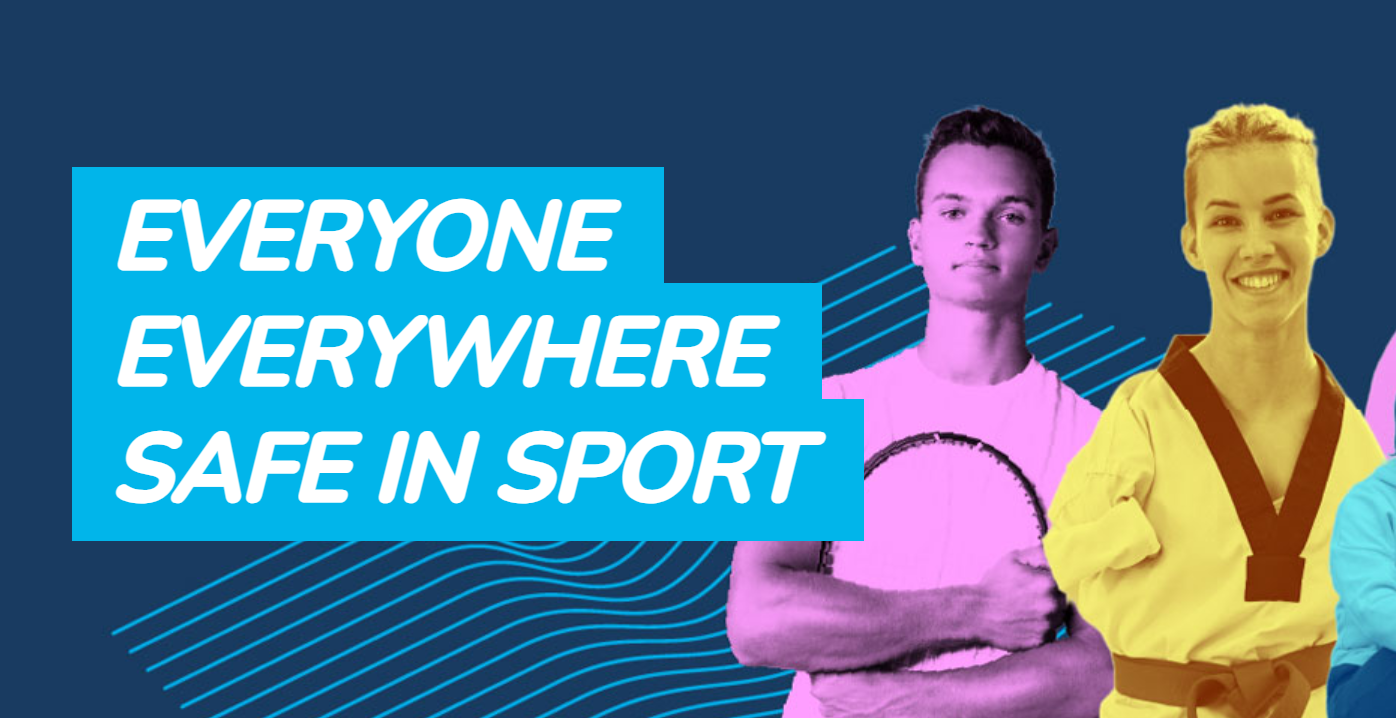
Kimberley Walsh, Safeguarding Adults in Sport Manager, attended the Safe Sport International (SSI) Conference in September 2023.
Taking place in Canary Wharf, London, the conference hosted attendees from across the globe both in person and online. It featured a full schedule of speakers sharing their expertise, good practice, successes, and challenges from the world of safeguarding in sport.
Attendees heard from athletes with lived experience of abuse. There were lawyers who specialise in representing survivors of abuse in sport. Researchers promoted data-driven best-practice; and international organisations shared the work they are implementing and leading.
It was fantastic to feel the shared passion for keeping people safe in sport. I also found the courage of those who shared personal stories humbling, and their drive for change inspirational.
Over the course of the two full days I attended, there were lots of key messages and food for thought. I’d like to share some of the key insights from the conference.
Culture
Mary Cain, American middle-distance runner, CEO of Atalanta NYC and Board member of The Army of Survivors, delivered the keynote to kick off day one of the conference.
- We’re not implementing cultural changes quick enough.
- The sport community could learn from industries outside of sport.
- We need to ensure that athletes have enough protection that they feel confident in speaking up about their experiences and their current environment.
- We should also strive towards a culture where athletes are encouraged to ask questions, and to get involved in creating their own journey.
- A coach/athlete relationship should be collaborative, not dictatorial.
- Athletes should not feel pressured to be a ‘coachable athlete’.
Listening and Learning From Survivors of Abuse
Joanna Maranhao, Brazilian Olympic Swimmer, Survivor, advocate, and researcher, spoke as part of a panel discussion on Healing, Transformation, and the Safeguarding Process.
- We must recognise the value of what a survivor has to offer.
- Survivors should receive renumeration for sharing their expertise, just as you would renumerate any other expert who you consult for advice.
- Trust is vitally important when working with abuse survivors.
- We must engage with survivors as individuals. This means finding out how much they want to contribute and letting them set the parameters.
- We must offer adequate wellbeing support throughout the process.
Organisations
As part of the same panel discussion, Joana shared these tips for organisations:
- Start by assessing your organisation.
- Actively seek to understand what is going on.
- Wherever possible, organisations should base policies and guidance on insights and data relevant to your organisation.
Whistleblowing
Jennifer Gomez Ph.D., researcher, and author, presented a keynote to wrap up day two on the theme of Institutional Courage. She suggested that organisations might thank any whistleblowers brave enough to come forward. “Thank you for helping improve our sport.”
She said a culture where whistleblowers receive public praise might encourage more to come forward when they spot signs of abuse.
Understanding The Impact of Trauma
Kat Craig, CEO of Athlead and Human Rights Lawyer, was part of a panel discussion on the theme of Trauma-Informed Legal Practice, talking about how we can support survivors seeking remedy. She also explored how to consider this in the way you work with someone.
For example, trauma can:
- Impact the way an individual hears or retains information.
- Impact the way someone recounts the information, often in a very non-linear way.
- Affect way someone presents themselves. For example, they may seem distracted or discourteous in their manner.
When considering the impact of trauma, and supporting someone through the safeguarding process, we should discuss and manage individual’s expectations. This means we must be transparent about what can or can’t be achieved.
Evaluate
The same panel discussion suggested that after someone has been through your safeguarding procedure, you should evaluate it.
Ask them:
- How was the process for you?
- What could we have done better?
- What worked well?
This is a simple process that any organisation can easily adopt and implement.
Boundary Transgressions
Marie-Claude Asselin, CEO of Sport Dispute Resolution Centre for Canada, spoke as part of a workshop on Emerging Practice at the National Level. While discussing how we can report and respond to concerns, she talked about using the term ‘boundary transgressions’.
Rather than looking for evidence of grooming, for example, it is much easier to take action and gather evidence boundary transgressions as they happen. So through tackling all boundary transgressions as early as possible, we can take away opportunities for further grooming and abuse.
International Safeguarding for Adults in Sport
SSI officially launched their International Safeguards for Adults in Sport Guidelines at the conference.
This is a significant step forwards for world sport. The work we do at the Ann Craft Trust has increased the awareness, knowledge and understanding of safeguarding adults in sport in the UK. But internationally, the focus to date has been primarily based on safeguarding children. In many countries, these guidelines will be the start of the journey to understanding the importance of safeguarding adults.
Make Your Commitment to Creating Safer Cultures in Sport
#SaferCultureSaferSport is a campaign for sport & activity organisations to create safer cultures. We’re asking you to commit to creating a culture in your sport organisation where welfare, safety & wellbeing is at the heart of your values and actions.
Make Your Safer Culture Safer Sport Commitment